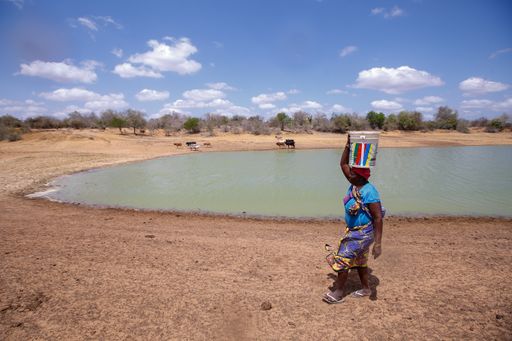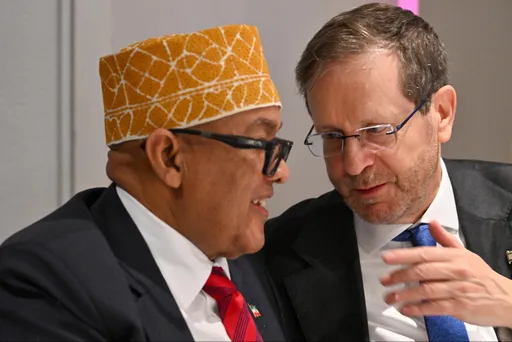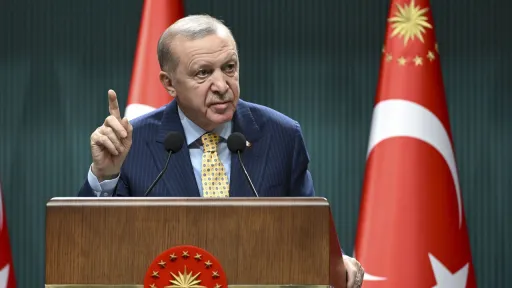Türkiye’s hosting of the 2026 United Nations Climate Change Conference, more commonly known as COP31, is significant both for international visibility and for establishing a decisive position in climate diplomacy.
At the Conference of the Parties (COP), the annual meeting of the 197 countries that are signatories to the UN Framework Convention on Climate Change (UNFCCC) to negotiate and agree on international climate policies, global decisions are made in areas such as greenhouse gas reduction targets and carbon market rules.
The roadmap for the implementation of the Paris Agreement is also shaped at COP meetings, and the decisions taken directly influence countries’ climate policies.
In this context, Anadolu has summarised the process in five questions, from how the COP functions to the responsibilities that hosting it brings.
What is the COP?
COP, the Conference of the Parties, is the highest decision-making body of the UNFCCC and meets annually.

Representatives from the convention's 197 member countries gather annually at COP meetings to review progress and negotiate global responses to climate change, including in areas such as greenhouse gas reduction, adaptation policies, climate finance, loss and damage mechanisms, and carbon markets.
Rules for the implementation of the Paris Agreement are also shaped at COP meetings.
What are the advantages of hosting the conference?
Hosting provides countries with diplomatic, economic and environmental gains. By hosting the COP, a country positions itself at the centre of global climate policymaking, gaining significant diplomatic visibility.
The participation of tens of thousands of delegates generates substantial economic activity in tourism, accommodation, transport and services.
Hosting also accelerates green transformation efforts in the country.
Renewable energy, sustainable urban planning and climate adaptation projects receive stronger attention.
Interest from international financial institutions and climate funds increases, and the host country has greater potential to attract investment in clean energy and climate finance.
Moreover, the host city draws global attention for two weeks, becoming the centre of climate diplomacy and enhancing its international recognition.
Which countries have hosted the conference already?
Since 1995, COP meetings have been held on different continents. Some notable host countries include Germany for COP1 (Berlin), Japan for COP3 (Kyoto), Denmark for COP15 (Copenhagen), France for COP21 (Paris, where the Paris Agreement was adopted), the UK for COP26 (Glasgow), Egypt for COP27 (Sharm El-Sheikh), the United Arab Emirates for COP28 (Dubai), Azerbaijan for COP29 (Baku) and Brazil for COP30 (Belem).
Türkiye will host a COP meeting for the first time next year.
What responsibilities does hosting bring?
Hosting the COP requires extensive organisational capability. Infrastructure must be prepared to accommodate over 100,000 participants, including large meeting halls, media centres, side event spaces and security arrangements.
The host country must ensure compliance with UN security standards and implement sustainability measures, including zero-waste initiatives and carbon-neutral organisation.
High-level diplomacy preparations are required due to the attendance of state and government leaders, along with the coordination of pre-meetings and technical committee sessions.
Thus, the host country is responsible not only for logistics but also for ensuring that global negotiations proceed smoothly in a healthy atmosphere.
What does Türkiye hosting COP31 mean?
Türkiye was part of a joint candidacy process with Australia for COP31.
During the COP30 General Assembly held in Belem, Brazil, it was decided that the next COP meeting would be hosted by Türkiye.
Representatives from nearly 200 countries will sit at the table in Türkiye next year to discuss climate action.
The COP31 Leaders’ Summit is planned to be held in Istanbul and COP31 in Antalya.
Thus, Türkiye will become the centre of global climate diplomacy for two weeks.
This process will significantly increase international attention from investors and funds toward Türkiye in areas such as climate finance, clean energy and green technology.
Türkiye's climate policies, emission reduction targets and green transformation programs are expected to serve as a global example.
























